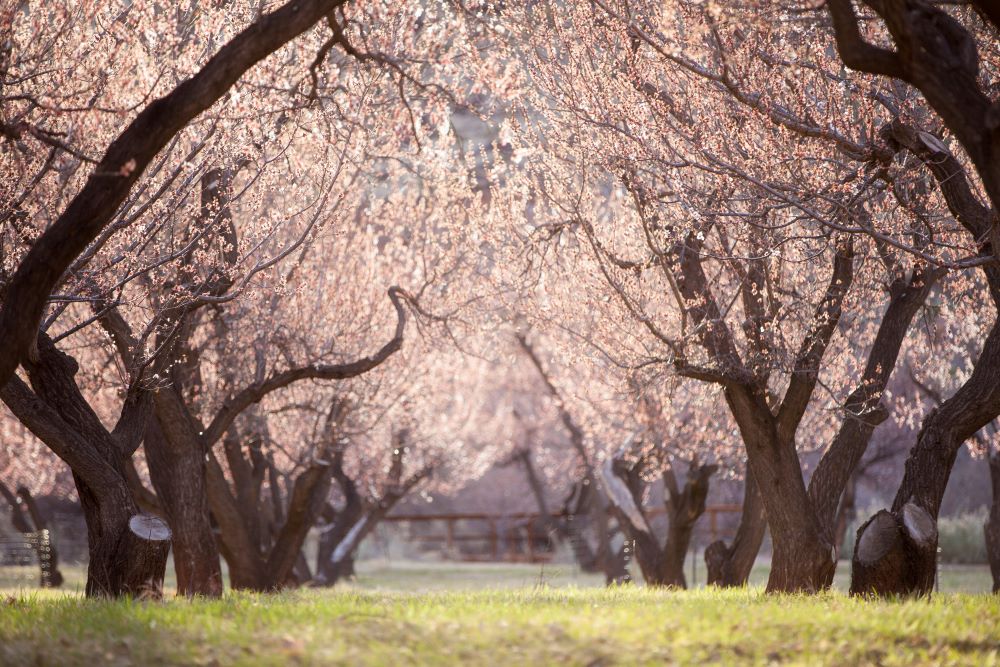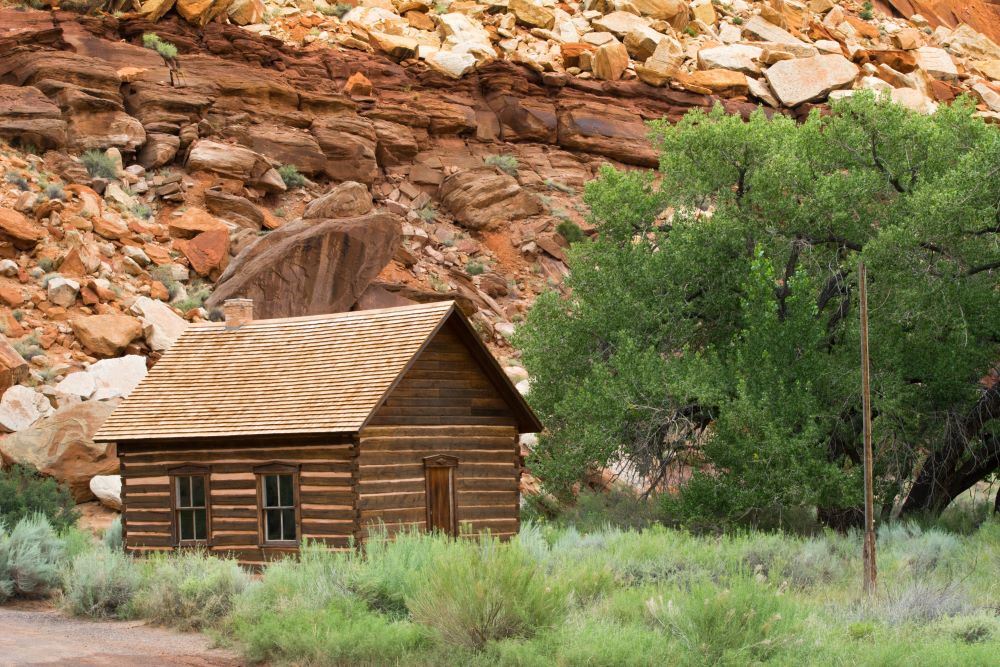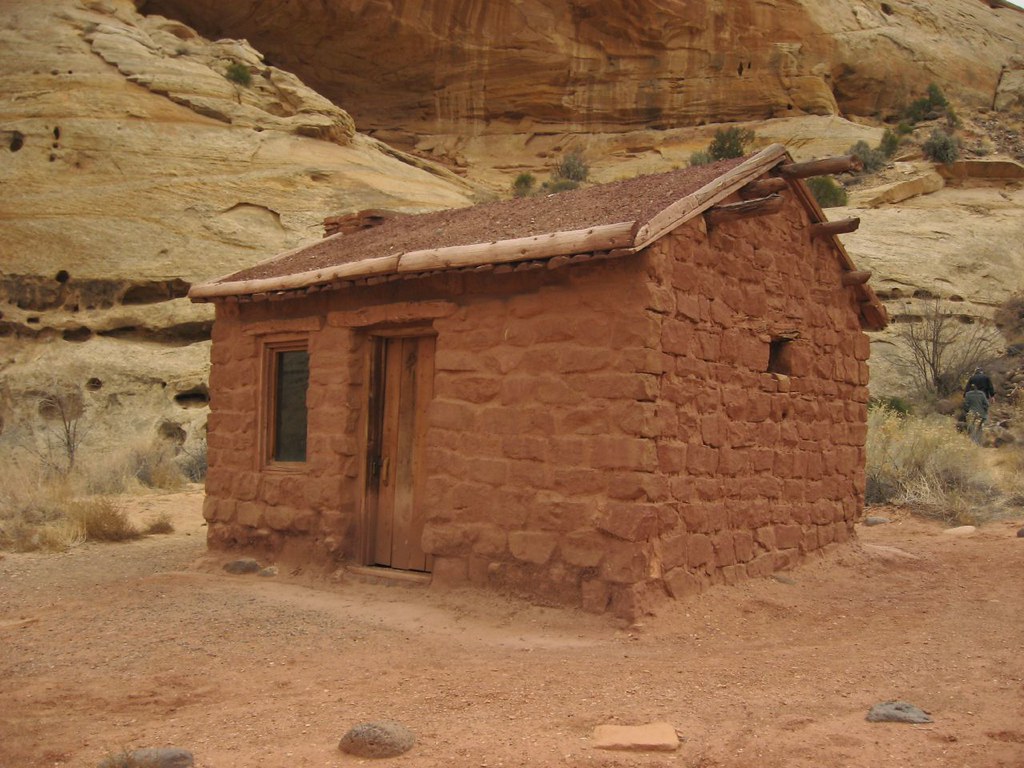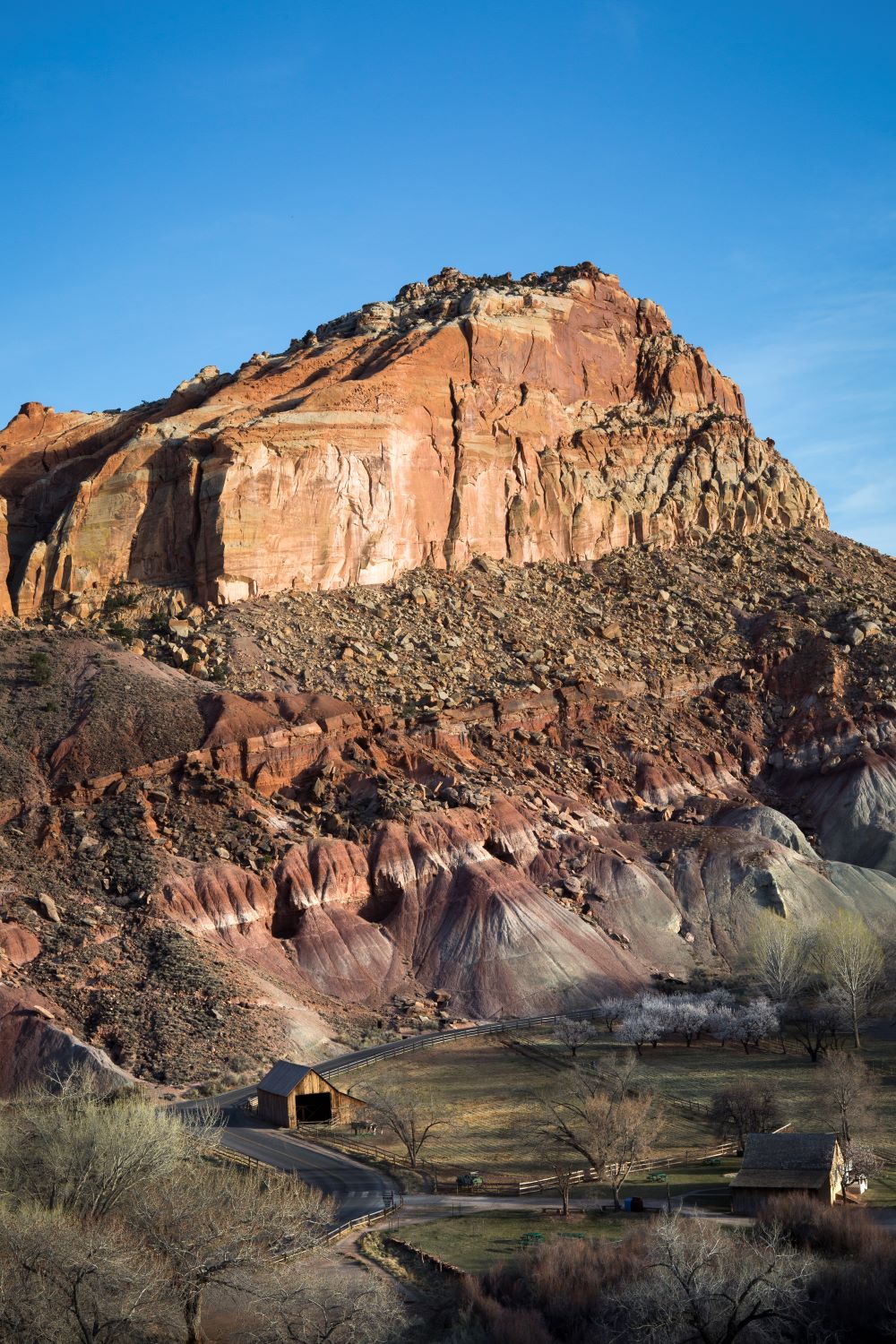"… make gardens, orchards, and vineyards, and render the earth so pleasant that when you look upon your labors you may do so with pleasure, and that angels may delight to come and visit your beautiful locations."
-Brigham Young as he sent settlers to remote areas of Utah
The desire for free, even slightly promising land, finally pushed homesteaders into and past that inescapable barrier, the Waterpocket Fold. The Mormon pioneers who settled this area in the 1880s saw that the Fremont River and its canyon would provide a welcome place for them to live with a perfect climate for orchards. They named the hamlet “Junction” and built a small but happy community. Trees laden with cherries, apricots, peaches, pears, apples, pecans, mulberries, and even plums all thrived in the canyon. Over time the orchards blossomed to include some 2,600 fruit and nut trees on the acres surrounding the pioneer community gaining renown as “The Eden of the Wayne County.” The abundance of successful orchards would eventually lead to the town changing its name to Fruita in 1902.
Homesteaders Nels Johnson and Ephraim Hanks were the first to move into Capitol Reef country and stake their claims on the available arable land. Johnson, in 1880, planted the first orchards of apples, peaches, pears, plums, walnut, and almond trees. Later he married Mary Jane Behunin, the daughter of another early Fruita resident, Elijah Cutler Behunin. Behunin built a small cabin that still stands today, along Utah Highway 24.
Behunin led a group of pioneers to clear a wagon trail through Capitol Gorge that allowed settlers, church officials, miners, outlaws, and others to pass more easily through the Waterpocket Fold. Many travelers left their names behind on the rock walls, now known as the Pioneer Register. Supposedly one outlaw, Butch Cassidy, called upon the Behunins regularly and even inscribed his name on the sandstone wall behind their cabin.
Behunin also donated land for the Fruita Schoolhouse that was completed in 1896. His 12-year-old daughter, Nettie, was the school's first teacher. The school remained open until 1941 when classes were consolidated, and students were bused to Torrey schools.

Brigham Young

Mature Fruit Trees in the orchard at Capitol Reef - Photo by Lindsey Elem

Fruita School House - Photo by Judy Day

Behunin Cabin
In the early 1880s, Ephraim Hanks, along with his wife Thisbe and their children, began homesteading on Pleasant Creek. Hanks chose the only open, relatively flat land between the deep, narrow canyons of Pleasant Creek to grow fruit and run a small ranch. The thousands of fruit blossoms in spring gave the homestead its name, Floral Ranch. This ranch changed hands several times during the early 20th century, until Lurton Knee bought the property in the early 1940s and established the Sleeping Rainbow Guest Ranch. His wife Alice became Capitol Reef's last resident, when she left in 1995.
By 1920, no more than ten families at one time were sustained by the fertile flood plain of the Fremont River and the land changed ownership over the years. Dewey Gifford was one of the area's last settlers, raising four children with his wife Nell in a two-story house built in 1908 by Calvin Pendleton and his family. Built along the Fremont River, this house would next be home to Jorgen Jorgenson 8 years later and finally to his son-in-law, Dewey Gifford, who took ownership in 1928. Gifford farmed the orchards, worked on a state road crew, and later ran a small motel as visitors came through Capitol Reef National Monument. When they were in their late 60s, Dewey and Nell moved to a new house in Torrey, becoming the last settlers to leave Fruita.
The land on which the historic Gifford House sits has been placed on the National Register of Historic Places. It’s one of the best places to visit to see what a home was truly like during that period. Descendants of these earlier settlers still visit Capitol Reef, sharing their history, picking fruit from the orchards, and hiking the paths their ancestors once took.

Gifford House Area - Photo by Brenda Lovell